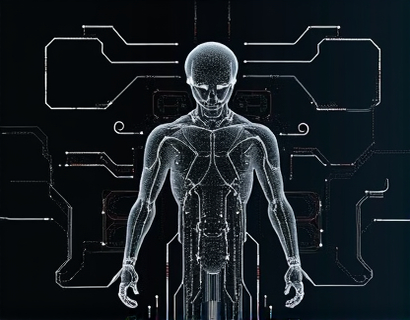AI Certification Pathways: Validating Skills for Digital Success
In the rapidly evolving digital landscape, acquiring specialized credentials through AI certifications has become a pivotal step for tech professionals and students aiming to enhance their career prospects and educational credibility. The integration of artificial intelligence across various industries underscores the importance of validating skills and knowledge in this domain. This article delves into the significance of AI certification pathways, exploring how they serve as a means to validate skills through completed tasks and educational milestones, thereby maximizing career and educational potential.
The tech industry's relentless growth and transformation have made AI a cornerstone of innovation and efficiency. As organizations increasingly adopt AI technologies, the demand for professionals with AI expertise has surged. AI certifications provide a structured pathway for individuals to demonstrate their proficiency in AI concepts, tools, and applications. These credentials not only validate an individual's skills but also signal to employers that the holder has undergone a rigorous evaluation process, ensuring a certain level of competence.
Understanding AI Certification Pathways
AI certification pathways are designed to guide learners through a series of educational milestones and tasks that culminate in recognized credentials. These pathways are typically structured to cater to different levels of expertise, from beginner to advanced, ensuring that learners can progress at their own pace and according to their career goals. The primary objective of these pathways is to provide a comprehensive learning experience that aligns with industry standards and best practices.
The structure of an AI certification pathway usually begins with foundational courses that cover basic concepts such as machine learning, data analysis, and programming fundamentals. As learners advance, they encounter more specialized topics like natural language processing, computer vision, and deep learning. Each stage is designed to build upon the previous one, creating a solid and coherent learning journey.
Benefits of AI Certifications
One of the most significant advantages of obtaining an AI certification is the enhancement of professional credibility. In a field where technology evolves rapidly, certifications serve as tangible proof of an individual's commitment to staying updated with the latest trends and techniques. Employers value these credentials as they indicate that the candidate has a verified level of expertise, reducing the risk associated with hiring new talent.
Moreover, AI certifications can significantly boost job prospects. Many organizations actively seek candidates with AI certifications, recognizing the value these professionals bring to their teams. Certifications open doors to new opportunities, allowing individuals to transition into roles that were previously inaccessible. This is particularly beneficial for those looking to break into the tech industry or advance their careers in AI-related fields.
Specialized Credentials and Their Value
Specialized AI credentials are tailored to specific areas within the broader field of artificial intelligence. These credentials focus on particular skills or technologies, enabling learners to develop a deep understanding of niche topics. For instance, a certification in AI ethics ensures that professionals are well-versed in the moral and ethical implications of AI applications, a critical aspect in today's data-driven world.
Another example is a certification in AI project management, which equips individuals with the skills to lead and manage AI projects effectively. Such specialized credentials not only enhance an individual's expertise but also make them more attractive to employers who are looking for experts in specific domains. By obtaining these specialized credentials, professionals can position themselves as go-to experts in their chosen area of AI, thereby increasing their market value.
Completed Tasks and Educational Milestones
The process of earning an AI certification involves completing a series of tasks and educational milestones. These tasks are designed to assess the learner's understanding and application of AI concepts. They may include coding exercises, project-based assignments, and theoretical exams. Each task is crafted to test different aspects of the learner's knowledge and skills, ensuring a comprehensive evaluation.
Educational milestones serve as checkpoints throughout the certification journey, marking significant achievements and progress. These milestones often correspond to the completion of modules or courses, providing learners with a sense of accomplishment and motivation to continue. By achieving these milestones, learners can track their progress and identify areas that require further improvement.
Maximizing Career and Educational Potential
AI certifications are not just about validating current skills; they also play a crucial role in career development and educational growth. For students and professionals alike, pursuing AI certifications can lead to a deeper understanding of the subject matter and open up new avenues for learning and exploration. The hands-on experience gained through certification tasks helps solidify theoretical knowledge, making it more applicable in real-world scenarios.
Furthermore, the process of obtaining an AI certification fosters essential skills such as problem-solving, critical thinking, and continuous learning. These skills are highly valued in the tech industry and are transferable to other fields, making certified individuals more versatile and adaptable in their careers. The rigorous nature of certification programs ensures that learners are well-prepared to tackle complex challenges and innovate in their respective roles.
Choosing the Right Certification Program
With the proliferation of AI certification programs, selecting the right one can be daunting. It is essential to consider several factors when choosing a certification pathway. First, align the program with your career goals and current skill level. Ensure that the certification aligns with the roles you aspire to and the technologies you wish to master.
Another critical factor is the reputation and recognition of the certification within the industry. Opt for programs offered by reputable institutions or well-known organizations in the tech sector. Look for certifications that are widely acknowledged and respected, as they carry more weight in the job market.
Additionally, consider the structure and content of the certification program. A well-structured program with a clear progression from foundational to advanced topics is more likely to provide a comprehensive learning experience. Interactive elements such as real-world projects, peer reviews, and mentorship can further enhance the learning process.
Lifelong Learning and Continuous Improvement
The field of AI is constantly evolving, with new advancements and innovations emerging regularly. AI certifications are not a one-time achievement but rather the beginning of a lifelong learning journey. Staying current with the latest developments requires continuous education and professional development.
Many certification programs offer ongoing support and resources to help certified professionals stay updated. This may include access to online courses, webinars, and community forums. Engaging with these resources ensures that certified individuals can continuously enhance their skills and adapt to the changing landscape of AI technologies.
Conclusion
AI certifications serve as a vital tool for tech professionals and students looking to validate their skills and advance their careers in the digital age. By providing specialized credentials that reflect completed tasks and educational milestones, these certifications enhance professional credibility and job prospects. The structured pathways and rigorous evaluation processes ensure that certified individuals possess a high level of competence in AI-related fields.
As the demand for AI expertise continues to grow, investing in AI certifications is a strategic move for those aiming to succeed in the tech industry. Whether you are a beginner looking to start your AI journey or an experienced professional seeking to deepen your expertise, AI certifications offer a clear and valuable path forward. Embrace the opportunity to validate your skills and unlock new possibilities in the ever-expanding world of artificial intelligence.










































